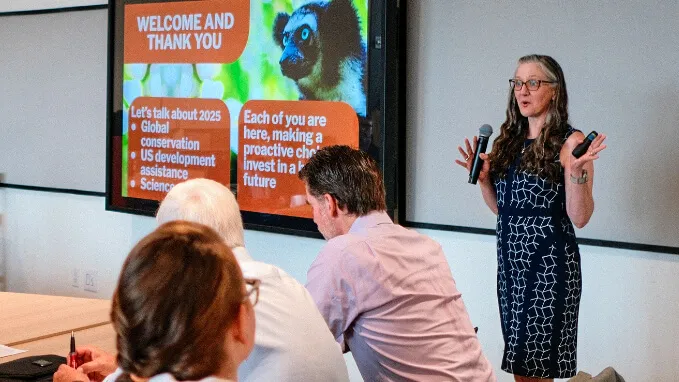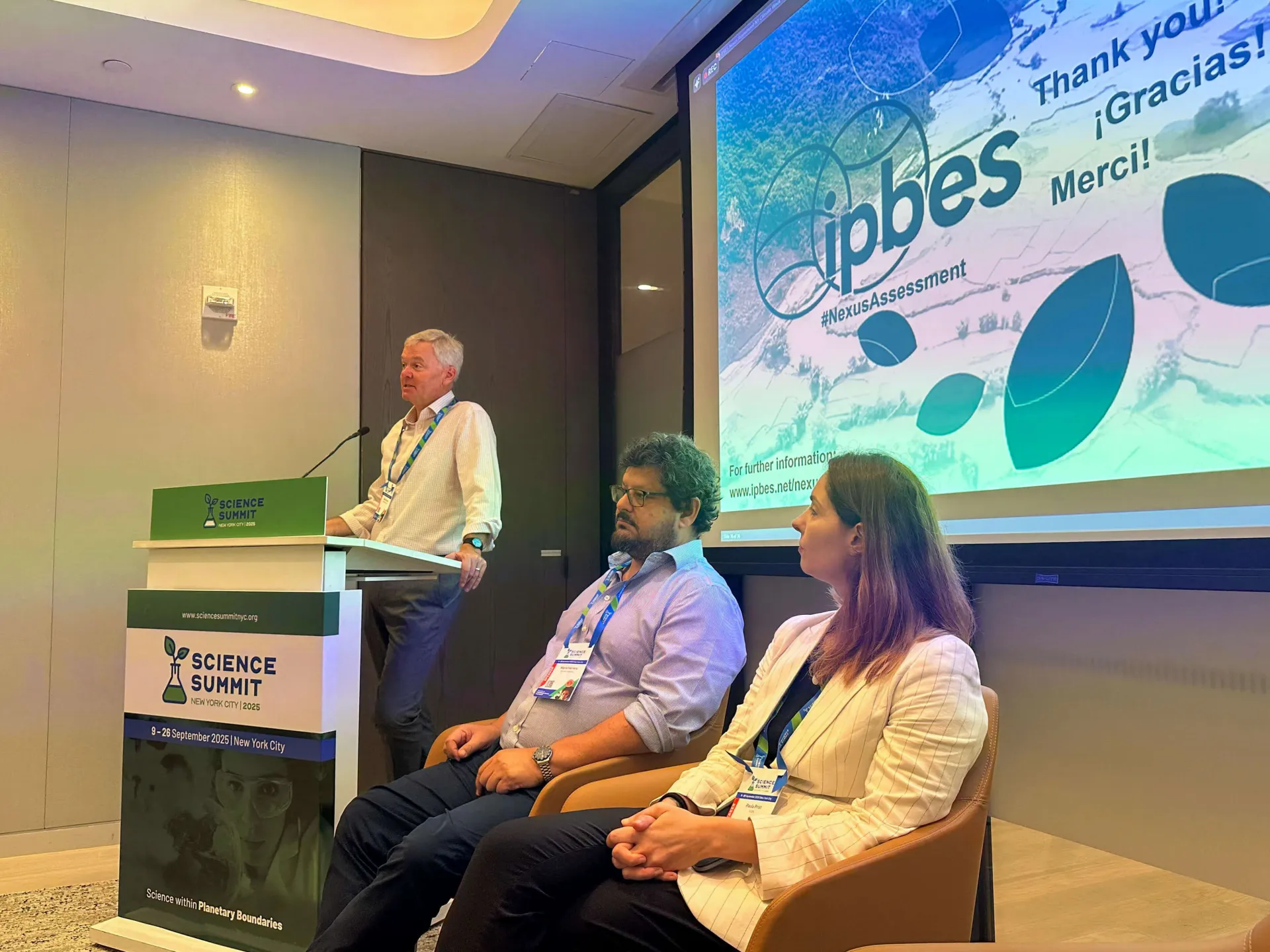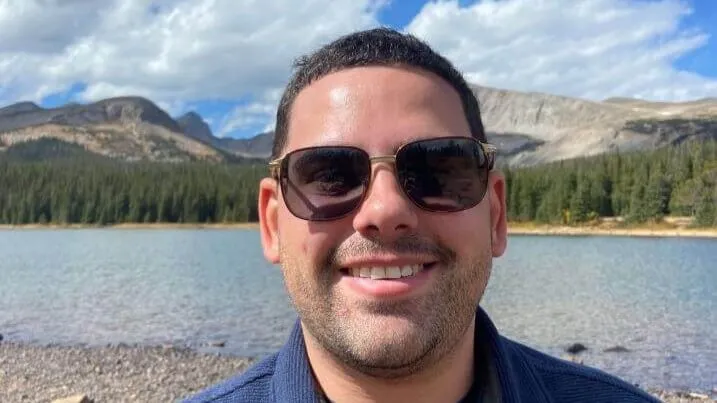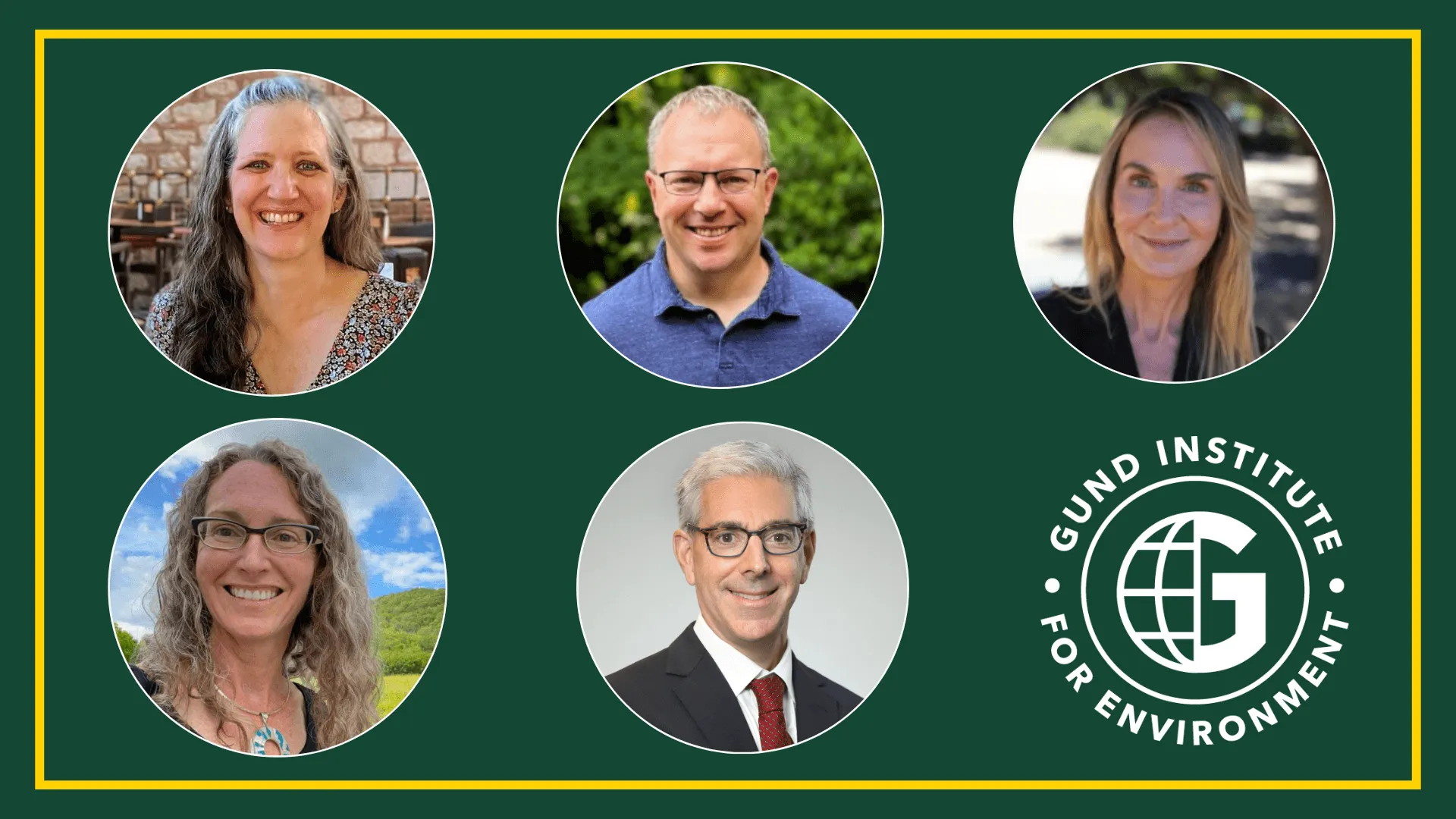The Gund Institute’s Policy and Partnerships team, as well as Institute Director Taylor Ricketts, last week joined thousands of leaders from across sectors at Climate Week NYC 2025.
The weeklong gathering, which included more than 900 events spread across the city, came as the United States abandons climate commitments and guts environmental agencies and research.
Organizers of Climate Week NYC hoped the gathering would serve as a source of hope and innovation, and Gund attendees said they saw evidence of that, despite the challenging geo-political circumstances.
“I wasn’t sure what to expect this year, but my week was spent interacting with innovative, committed people from all over the world, all equally committed to climate solutions despite current politics,” said Dr. Ricketts. “We came back with new collaborations, new ideas, and new energy do our part at the Gund Institute.”
Ricketts also presented at Climate Week. During a Thursday panel, he and co-authors shared key findings from the Nexus Report of the Intergovernmental Science-Policy Platform on Biodiversity and Ecosystem Services, or IPBES. The report explores the interlinkages between climate change, biodiversity, food, water, and human health and highlights more than 70 opportunities to manage them as the integrated crises they are.
Amanda Sardonis, director of Policy and Partnerships at the Gund, said even in today’s political climate, there’s a strong demand for the science and expertise that Gund’s community of scholars can offer, and the team made connections and gathered opportunities for future collaborations.
It’s important for universities to show up where leaders in business, government, and civil society gather to talk about barriers to collective action and possible solutions, sharing actionable research findings and telling the story of how our work benefits people and communities, she said. Gund is part of a coalition of likeminded university-based environment institutes at Princeton University, Stanford University, Cornell University, and Arizona State University, who are collaborating to think bigger than what our individual organizations can achieve on our own and help chart a path forward in the years to come.
Reimaging Global Conservation
That was exemplified by a new effort to reimagine how the U.S. could engage in biodiversity conservation around the world, in the wake of the dissolution of the U.S. Agency for International Development (USAID), which was one of the world’s largest supporters of wildlife conservation and environmental protection.

Cynthia Gill, who formerly led the conservation sector at USAID for 25 years, opened and co-led two events at Climate Week to help reimagine a future for U.S. support for global conservation.
Through this effort, the team hopes to develop a playbook or blueprint for a new future system and an engaged, broad coalition contributing to a new generation of conservation investment.
"We were thrilled at the incredible level of participation and commitment to building a new future,” said Gill, who is a Macmillan Visiting Scholar at the Gund, global conservation advocate, and executive coach. “A wide range of people came with an equally wide range of perspectives. I am inspired and heartened for the future!"
For further information, please reach out to Cynthia at cgill4@uvm.edu or join the Reimagining Global Conservation mailing list at: https://lnkd.in/ePZY4FJB
###
About the Gund Institute: The Gund Institute for Environment at the University of Vermont is a research center dedicated to understanding and tackling the world’s most critical environmental challenges. Driven by the belief that research should inspire action, the Institute takes a cross-sector approach to solving environmental issues with stakeholders from government, business, and broader society. The Institute focuses on five interconnected research themes: climate solutions, sustainable agriculture, health and well-being, equity and justice, and resilient communities. With 300 scholars in Vermont and across the world, the Institute brings together a network of internationally recognized researchers from diverse disciplines, including the natural and social sciences, business, health, technology, engineering, and the humanities.



